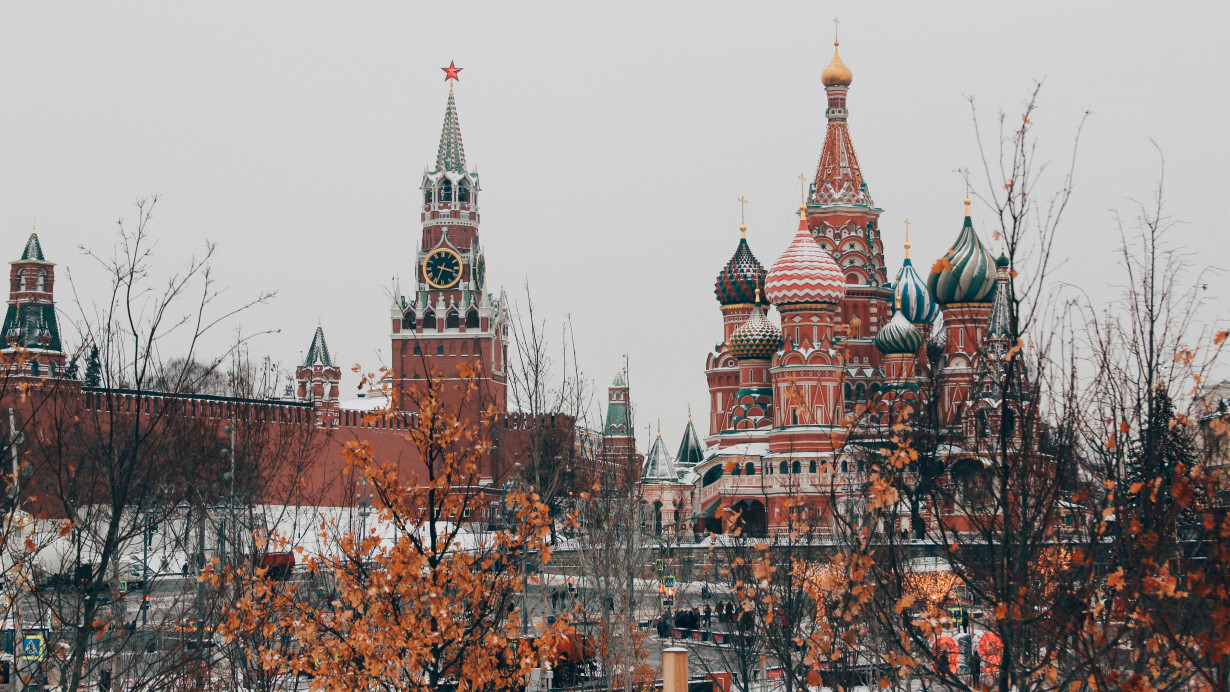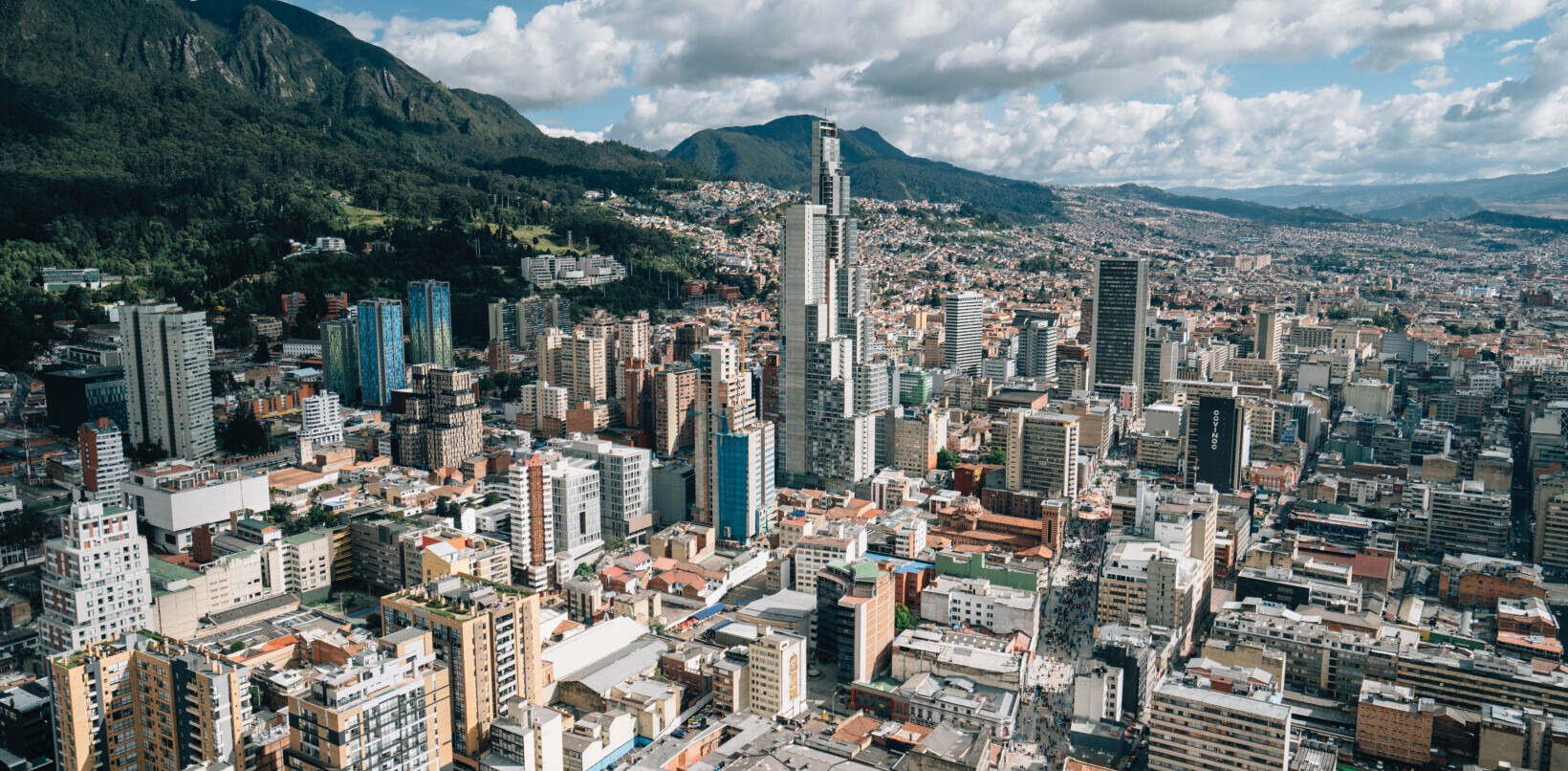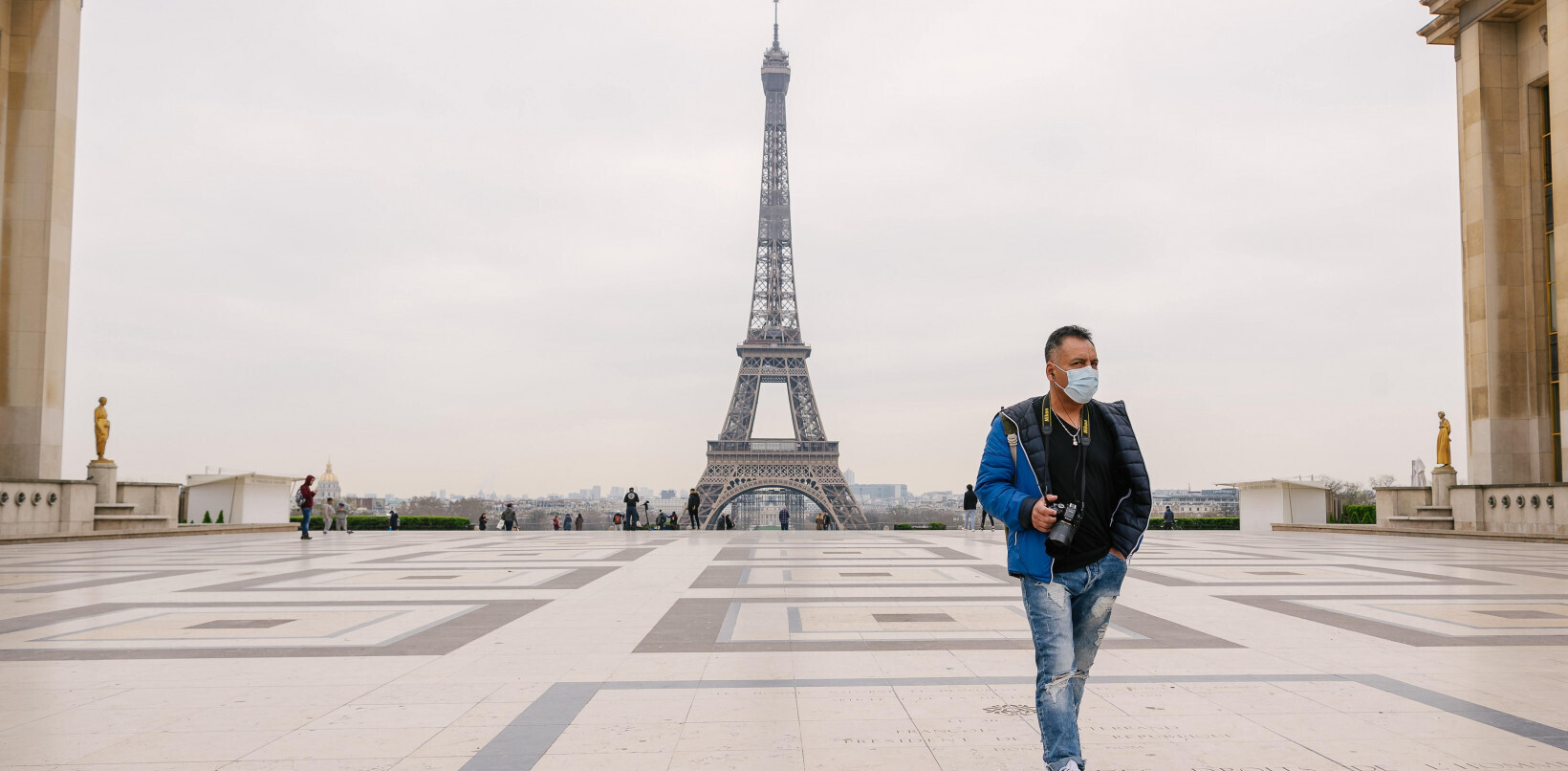
The majesty of Moscow is no secret, but relatively few Westerners have had the chance to get to know it up close. Fulfilling a longtime dream, a team member recently had the special opportunity to see and explore Russia’s larger-than-life capital. He returned telling us of the awe-inspiring Red Square, the Kremlin’s looming presence over the city, and the opulent beauty of the capital’s many colorful, gold-hatted Orthodox churches glittering in the sun.
However besides being stunned by Old Moscow, he had a great deal to say about New Moscow, and the vibrant community of young, engaged and open-minded tech enthusiasts breathing life daily into its startup ecosystem.
Despite U.S. and E.U. economic sanctions, Inc Magazine last year voted Moscow the second best-performing city in the world for fast-growing private enterprises by. And, as my colleague’s many meetings with Moscow’s movers and shakers can attest to, its flourishing startup community is keen to connect with the rest of the world. So let’s take a look at Moscow’s booming ecosystem, and the challenges and advantages it offers to local innovators and entrepreneurs.

Local startup community
Look in Moscow for traces of the most commonly-used events and startup community platforms in the US and Europe – F6S, Eventbrite, Meetup.com – and it may appear on first glance that there isn’t a particularly active community there.
However, just because Moscow techies aren’t using the same platforms as the West to promote their events, doesn’t mean they aren’t happening.
Much to the contrary, there is a vibrant tech and startups events scene across the city. However, it can be a little tougher for foreigners to find out what is going on, as events and promotions are generally published on Russia’s brand of major social media platforms, like VKontakte and Odnoklassniki.
So, for business and startup news in English, check out The Moscow Times or EWDN. And for Russian speakers, local tech publications like VC.ru, Rusbase, Firrma or Forbes Russia offer dynamic coverage of the region.
Victoria Zavyalova, founder of V Startup Agency, explains that while tech media is not as diverse as in the US or Europe these publications provide a lot of guidance for local tech entrepreneurs.
For newcomers to Moscow looking for a ‘foot in the door’ to the local tech community, a good starting point would be one of the many co-working spaces popping up across the city. Co-work behemoth WeWork is set to open its first site in Moscow in 2019, but there are already plenty to choose from.
Members-only organizations like Cabinet Lounge, DI Telegraph, WorkStation, StartHub and Arma Coworking are centrally located and regularly hold workshops, events, and networking sessions designed to foster a more cooperative tech community. Local Coworking organization #tceh collaborates with the state Fund for Internet Initiatives Development to run sessions in which entrepreneurs can pitch ideas and receive feedback from mentors.
Catering to Moscow’s abundant developer talent, regular hackathons like SkolTech take place across the city. Also of note, U Skillz, an educational project set up by serial entrepreneur Dmitry Falaleev, regularly brings together local entrepreneurs, journalists and innovators to exchange ideas on key technological and social trends.
In terms of tech conferences, Moscow is home to a large lineup of events organized by both local players and international startup organizations. Maxim Volokhov, Co-founder of Admitad, explained that over the last few years there has been an explosion of both local events and larger conferences. Startup Village, organized by the state-funded Skolkovo Foundation, is the largest, expecting to attract as many as 20000 visitors and 4500 startups this year. The Open Innovations Forum, held every autumn, aims to boost innovation and collaboration within the region – last year it welcomed a range of noteworthy speakers like Arkady Volozh CEO of Yandex, and Ann Cairns, the president for International Markets at MasterCard.

Meanwhile, in October, GoTech will connect more than 300 startups with local investors and potential corporate partners. And for those interested in crypto and blockchain, the World Blockchain Summit has offered a star-studded speaker lineup from the crypto space.
Talent
Speak to important players about starting up in Moscow and they’ll agree that one of the region’s main advantages is access to a steady flow of highly-trained technical talent.
Always a national priority for the Soviet Union governments, considerable investment in STEM education continues. As such, there is a steady flow of tech talent entering the local tech industry from respected institutions like Moscow State University, the Moscow Technological Institute, the Moscow Institute of Physics and Technology, the Bauman Moscow State Technical University and the National Research University of Electronic Technology.
Victor Frumkin, co-founder of Instreamatic, points out that Russian universities generate the most software engineers in the world, accounting for almost twice as many coding graduates as seen in the US. Frumkin believes the best plan of action for any Russian startup is to base a team of developers in Moscow, regardless of whether they intend to launch locally or not. Anton Chirkunov, CEO/Founder at Uber competitor Wheely, and Alexander Korenevski, CEO of Entrine, added that they’ve continued hiring development teams in Moscow, due to the proven quality of the talent there.
According to Nikolay Manolov of startup Xor.ai, despite major changes over the last two decades, engineering schools remain strong in providing highly skilled data science and machine learning engineers.

Government Support
With homegrown STEM talent, scientific research, and innovation remaining points of emphasis for state investments, there are plenty of state-backed resources available for local startups too.
The most well known in the Moscow area is the Skolkovo Innovation Center, based in the Mozhaysky District. The futuristic complex claims to be the largest Tech Park in Europe, and features research labs, R&D laboratories, an accelerator program, startup offices, co-working spaces, and educational facilities. The site is also home to regular hackathons and events, including StartupVillage. Startups who base their companies in the center can apply for considerable tax breaks from the government for set periods while they develop their companies.

Other key state-funded startup support organizations include the Moscow Innovation Development Center, the Russian Venture Corporation, the Russian Corporation of Nano Technologies, and the Russian Direct Investment Fund, which offer hundreds of emerging Muscovite startups funding and access to R&D facilities each year.
After the Russian annexation of Crimea in 2014, international sanctions were imposed that have banned the selling of technology to Russian companies, especially those working within the energy and military sectors. In response, the Kremlin is reported to have begun a push for Russian companies to create their own ‘made in Russia’ versions of popular Western tech tools.
According to the Moscow Times the government created a fund of ₽15 Bn ($256M) from the state budget to support Russian companies in developing alternatives to 77 different western technologies that are no longer being sold due to sanctions.
But, the problem for the government is not just providing resources that allow innovation to flourish, but also providing the support needed to convince founders to stay once they have created amazing products and services. Despite corporate taxes being considerably lower in Russia than in other leading Western economies, Entrine’s Alexander Korenevski explains that more experienced founders have increasingly flocked to the US and other more established tech ecosystems, even while many young, talented people are happy to start their careers in Russia.
According to the Moscow Times, state officials are working to set up a VC fund to lure local Russian entrepreneurs to stay close to home rather than emigrating abroad. And, co-founder of ID Finance Alexander Dunaev told us many examples of Moscow tech success stories which had left for bigger Western hubs – including Xsolla, Api.ai, Itseez, Veeam Software, Grabr, Coub, inDriver, and NtechLab.
Accelerators and incubators
Outside of government-backed accelerators such as the Skolkovo Foundation, there are a large number of private accelerators and incubator programs dotting Moscow. These include the French organization MEF, Rutech, NUMA, the IIDF accelerator, GenerationS, Disruptive, and corporate accelerator programs from companies such as IKEA.
A number of local universities have also opened up their own accelerator programs, including the Higher School of Economics Business Incubator, the Plekhanov Russian University of Economics Incubator, Technopark Strogino, the Branch Agricultural Business Incubator and the MGIMO, which offers entirely free resources to students looking to scale ideas.
Vladimir Sveshnikov, CEO at Robot Vera, explained that the IIDF incubator and other government-backed and private organizations across the city are extremely useful when early-stage companies are trying to set up their business processes, make a name for themselves through marketing, and search for corporate partners. Even so, beyond seed funding it can be challenging to raise money through local accelerators and incubators, often forcing founders to start looking for funding options abroad at an earlier stage.

Access to funding
As mentioned before, there are multiple public funds available to local entrepreneurs, such as the Innovation Assistance Fund, the Skolkovo Fund Granting Programme and the Innovative Entrepreneurship Support Fund, to name a few. There are various smaller investment funds operating on the regional level, providing small grants of up to $10,000. But federal organizations, such as Skolkovo, provide access to both large grants of up to 30, 150 and 300 million rubles — depending on the stage of the project — as well as mini-grants of up to 5 million rubles.
However, a common gripe from local entrepreneurs is that there is still too much ‘red tape’ slowing down the process of applying for government assistance, which is driving founders towards raising funds privately. In a recent Reuters article, Vitaly Ponomarev founder of WayRay estimates it could take as long as 9 months to have a grant approved by the Skolkovo Foundation, which is too slow for most startups.
Government-endorsed private funds like the IIDF are particularly active in Moscow, where more than half of the fund’s total investments have been made. According to EWDN, initially the IIDF concentrated mainly on startups focused on servicing the domestic market; however, in recent years, it has begun investing more in local startups targeting the global market.
Finding VC and Angel investment has traditionally been much easier in Moscow and other large Russian cities than in other parts of CEE. Notable VC organizations in the city include ABRT, AddVenture, Foresight Ventures, Frontier Ventures, Imi.vc, Itech Capital, Kite Ventures, Leta Group, N Lab Ventures, Prostor Capital, Russian Ventures, Ruvento Venture fund, Start Fellows, Synergy Innovations, and VTB Capital.
Ruslan Zaydullin from Doc+ explained that, over the last couple of years, there has been a renewed energy within the VC industry in Russia, as well as more investment in local events, meetups and conferences bringing startups and VCs together. A recent report from RB Partners shows that while deal numbers may have dropped slightly from 2017-2018, the average deal size, investment volume, and the number of successful exits, improved dramatically over this time period.
However, the current political climate has meant many large Western VC firms either cannot or will not invest in deals in Russia. This is limiting the options for local startups aiming to raise larger rounds and/or targeting foreign markets, and thus forcing many to move abroad before beginning to raise A or B round funding.
Gennady B Agrest, co-founder at Russeed – a platform assisting Russian startups in expanding into the UK – says that in spite of improvements over the last five years, Moscow’s startup culture still lacks the sort of infrastructure required to effectively scale technology companies that other Western ecosystems like San Francisco, Berlin or London boast.
While there is funding available, Agrest highlights a lack of ‘smart capital’ from experienced investors who have already had a number of successful exits within particular technologies or spheres. He argues that this is further compounded by the relatively small and low-income market within Russia, and the enticement of better salaries and prospects internationally that leads founders to start thinking of options abroad from an early stage. Katya Dorozhkina, Founding Partner at Starta Ventures, points out another problem for Russian startups: they struggle to be valued on par with startups in more developed ecosystems, which limits how much they can raise in future rounds.
Advantages of starting up in Moscow
While the startup ecosystem in Moscow might not be quite as developed as in San Francisco, Berlin or London, the support network in the Russian capital remains one of thead largest and most active in central and eastern Europe.
Beyond the strong flow of technical talent from local universities, another notable advantage is a startup community well versed in Silicon Valley Startup methodologies, like the Lean Startup Movement. These methodologies take full advantage of the wealth of resources made available to them by the state, and also by private startup and VC organizations.

There are a number of industries in which Russian startups are pushing ahead in the region, including in payments and lending, mobility and share economy delivery apps, and in the blockchain and ICO space. Russia is the 5th largest apps market in the world, and in 2017 Moscow became the car-sharing market world leader. Due to the current push from the Russian government, there is also a lot of opportunity for startups making ‘copycat’ products of foreign tech systems, specifically for the domestic market.
Compared to more established western ecosystems, startups based in Moscow are able to create super strong tech and IP heavy products at a low cost. This is due to the talent and resources available to them, and to the fact that their limited access to funding past seed round generates teams used to bootstrapping and running lean.
Challenges of starting up
Ultimately, the area in which Moscow’s tech scene most needs improvement is in the local venture capital ecosystem. Things are moving in the right direction in Moscow; however, sanctions and a cold political climate are limiting the entrance of large global and American VC firms into the country, thus placing a glass ceiling above would-be Russian Unicorns.
When compared to any other country in CEE, the local market in Russia is large, but pales in comparison to that available to foreign startups who can target the whole of western Europe and/or the US. While it is possible for startups in Moscow and the rest of Russia to raise seed and pre-seed money, raising later rounds is really problematic, as the the venture system is not as developed as in Western Europe or the US.
Until the local VC market continues creating more large, successful exits that bolster the confidence of local investors, this will continue to force founders to seek larger funding rounds elsewhere.
Nevertheless, despite the growing pains and roadblocks, the atmosphere within the Moscow ecosystem is one of positivity and enthusiasm for the future. And, if Russian companies can find a way to interact more with foreign markets without having to leave their home country, all of the essential ingredients are in place for a strong, sustainable tech ecosystem.
For now, the high quality of living, strong talent base, and the promise of government support is providing ample room for the growth of innovation and startup culture. Scaling between the golden domes of Russia’s capital may have never been more possible.
This article was Co-Authored by Espacio’s Craig Corbett and Talos Digital’s Amyn Gillani
Get the TNW newsletter
Get the most important tech news in your inbox each week.




